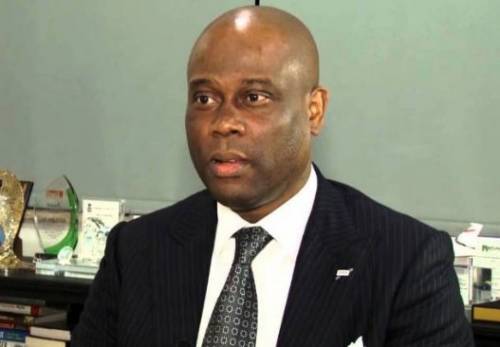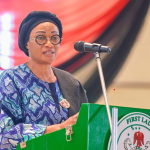...To get all news updates, Join our WhatsApp Group (Click Here)
Also Join our WhatsApp Channel (Click Here)
One year after the painful death of Dr Herbert Wigwe, the Former Group Chief Executive Officer (CEO) of Access Holding Plc, the Late banker’s family has been enmeshed in an acrimonious battle over his will and assets.
Newsmen report that some members of the late banker’s family have masked their self-seeking agenda by working through proxies.
Emeka Wigwe, one of the banker’s brothers, seems unbothered by the propriety or otherwise of his action.
According to reports, Emeka could not disguise his greed and hatred for the late banker’s children.
He has been acting incredulously since the demise of his later brother, who had written out his will and listed the beneficiaries of his assets.
Reports say Emeka had been detained by his father, Pastor Shyngle Wigwe, for his noxious behaviour. He also attacked men of the Department State Services (DSS), when the late banker’s children, cousin, in-laws and friends were exiting his grave side after a quiet moment and prayer earlier on Saturday ahead of the remembrance of his death on Sunday Feb. 9.
Fortunately, the visitors, which included children and teenagers, had finished their prayers and were exiting the burial ground when Emeka Wigwe barricaded the exit point, with the intention of preventing their vehicles from leaving.
It took the DSS personnel, who went with the visitors for security purposes, to persuade him to allow the vehicles to depart, but Emeka Wigwe decided to assault them as recorded in the viral video.
The professionalism of the men of the DSS came into play and restrained them throughout the period of Emeka Wigwe’s molestation of the security personnel.
https://www.facebook.com/share/v/19opNX9G8U/?mibextid=wwXIfr
According to a report, he had put up a similar behaviour about three months ago at the matriculation ceremony of the Wigwe University, where he did not only assault his nice – late Herbert Wigwe’s daughter, but also disrespected the leadership of the Port Harcourt City One Love Club.
The Club, which he belonged to until his expulsion because of his unruly behaviour, thuggery and disruptive conduct.
The matter was duly reported to the law enforcement agencies, but the individuals concerned decided not to press charges because of entreaties by several well-meaning individuals.
Accordingly, late Dr. Herbert Wigwe’s memorial service and related activities will be held on Sunday, February 9, and water-tight arrangements have been made to ensure security of lives and property.
You can get every of our news as soon as they drop on WhatsApp ...To get all news updates, Join our WhatsApp Group (Click Here)
Also Join our WhatsApp Channel (Click Here)

















